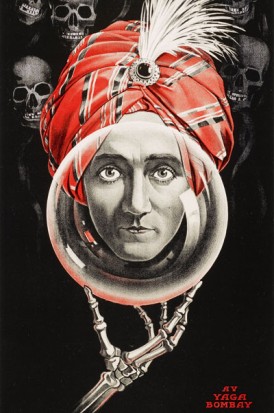As ever, there are some absolutely scintillating book reviews in this week’s issue of the magazine. Here is a selection:
Sam Leith revels in ‘a blindly good story extremely well told’: Glorious Misadventures: Nikolai Rezanov and the Dream of Russian America by Owen Matthews.
‘Like most if not all imperial adventures, the civilising mission (ho ho) followed the money. Ever since the first Cossack pirate found a way through the Bering Strait, fur, or ‘soft gold’, was what they were all after. The discovery that in Chinese entrepot towns the pelt of a single sea-otter would fetch the equivalent of two years’ salary for an ordinary seaman was all anyone needed to know. Fur, tea and American manufactures were the basis of a Pacific triangle trade. The Brits took an interest, and so did the Spanish — who then held bits of the West Coast up to San Francisco.
Anyone with the faintest familiarity with Russian history will be used to the idea that whatever the rest of the world can show in endurance, suffering, bloodthirst or cruelty the Russians will generally trump it without turning a hair. (‘Only a Russian could write of Alaska,’ Matthews remarks drily, that it is ‘very seldom cold here’.) The story of Russia’s Wild East does nothing to change that view. And — as you might expect from an unimaginably enormous empire governed from a weird little pimple on its Western edge — 11 time zones and thousands of miles of frozen tundra east of head office, the local contractors tended to improvise a little when it came to ethics and deportment. The genius of the lawless Siberian fur trade, and our man’s first father-in-law, Grigory Shelikhov, was a murderous Del-Boy who nevertheless turned over three million roubles at a time when the entire Russian state budget was 40 million roubles.’
Aidan Hartley reads The Ghosts of Happy Valley by Juliet Barnes, and wonders if white Kenyans like him will ever shake off the idea of ‘Happy Valley’.
‘It is 30 years ago that James Fox, inspired by Connolly, resurrected these tawdry events in his book White Mischief. It has never been out of print since. And who can blame readers, when you have characters like the nymphomaniac Idina Hay, or the smacked- up sex-bomb Alice de Janzé and the husband she shot at the Gare du Nord, Raymond de Trafford, whom Evelyn Waugh when he visited Kenya thought was ‘very nice but so BAD and he fights and fucks and gambles and gets disgustingly drunk all the time’.
A problem with the depiction of Happy Valley arises when you encounter stories like that of Mary Miller, to whom I am very distantly related. Juliet Barnes hears that Mary ‘lived off lorry-loads of champagne and booze before shooting herself…’ Also that she and her husband were on the edge of the notorious party set in their home near the Wanjohi or ‘Happy’ Valley, a chilly cleft in the Aberdare highlands near where Barnes herself lives today. The gossip is entirely untrue, as Barnes, a white Kenyan whose book thankfully begins to debunk the Happy Valley silliness, discovers.’
John Preston is beguiled by Ricky Jay, Mike Caveny and Jim Steinmeye’s rollicking history, Magic.
‘Magic, not altogether surprisingly, took off as a public spectacle during the Age of Reason, when the desire to believe in the inexplicable underwent a sudden, indirect, surge. For a long time, China was held to be the source of the most powerful magic — it being very far away and full of famously inscrutable people. By the end of the 19th century, the theatres of London, Paris and New York were full of magicians with shaved heads and droopy moustaches and names like Fu Manchu.
Many, like Fu Manchu himself — real name David Bamberg — had never been further east than Barking, and therefore had to keep their stage patter to a minimum. One man, Ching Ling Soo (aka William Robinson) only ever spoke on stage once. This was when his famous Bullet Catching Trick went horribly wrong and he was shot through the heart. The audience, assuming Ching’s death agonies were part of his act, were astonished to hear him shriek, in perfect English, ‘Oh my God, something’s happened! Lower the curtain!’
And that is not all. Alan Judd waxes lyrical about Ben Wilson’s Empire of the Deep: The Rise and Fall of the British Navy. Charlotte Moore is nonplussed by Philipp Meyer’s The Son. Wynn Wheldon is impressed by William B. Irvine’s account of violence and self-esteem, A Slap in the Face. Emily Rhodes is dazzled by Ali Smith’s collection of short stories, Shire. And John McEwen agrees with Mark Cocker’s view, expressed in Birds and People, that a ‘world without birds would lay waste the human heart’.
Subscribers, all of this is on its way to you. Non-subscribers, you can join us today by taking advantage of our brilliant summer subscription offer, which is laid out below.






Comments